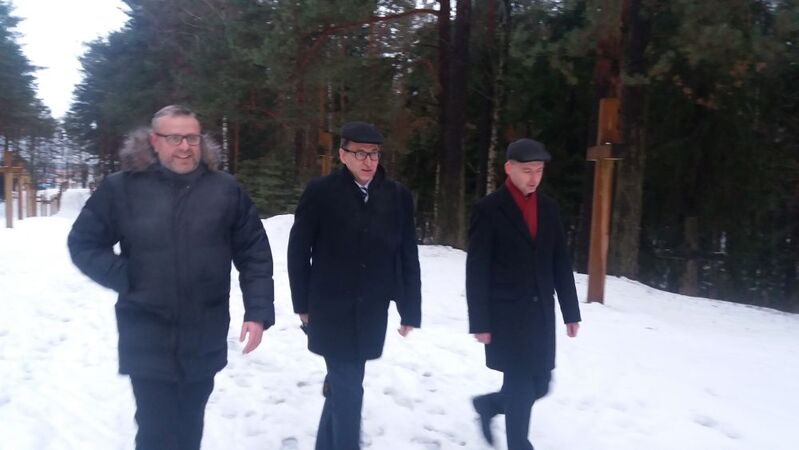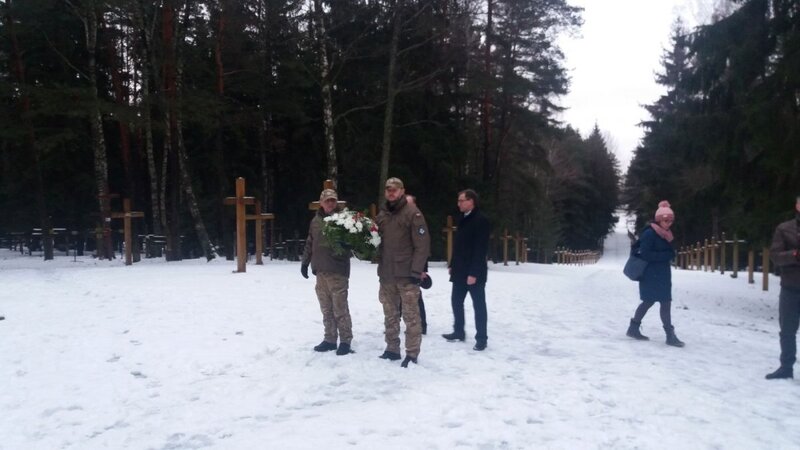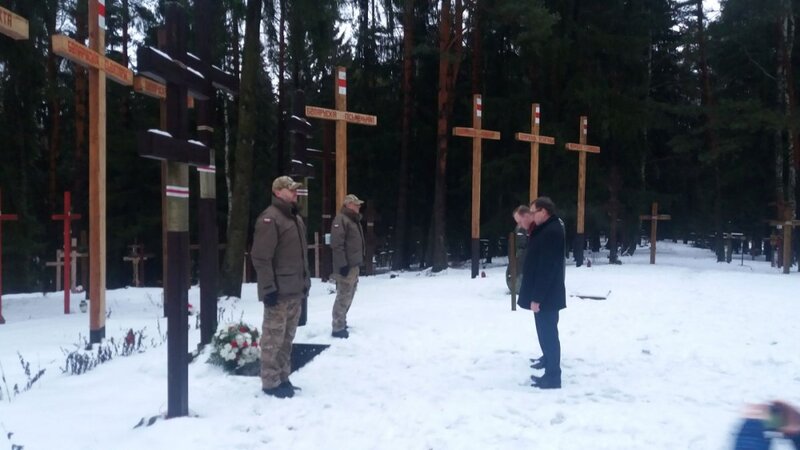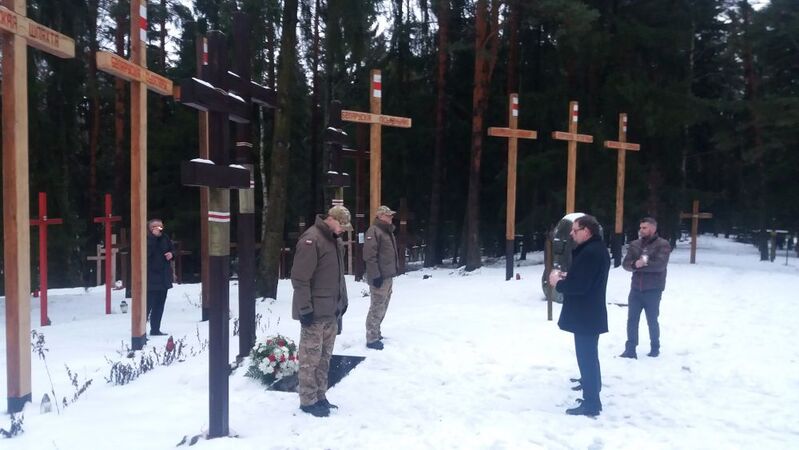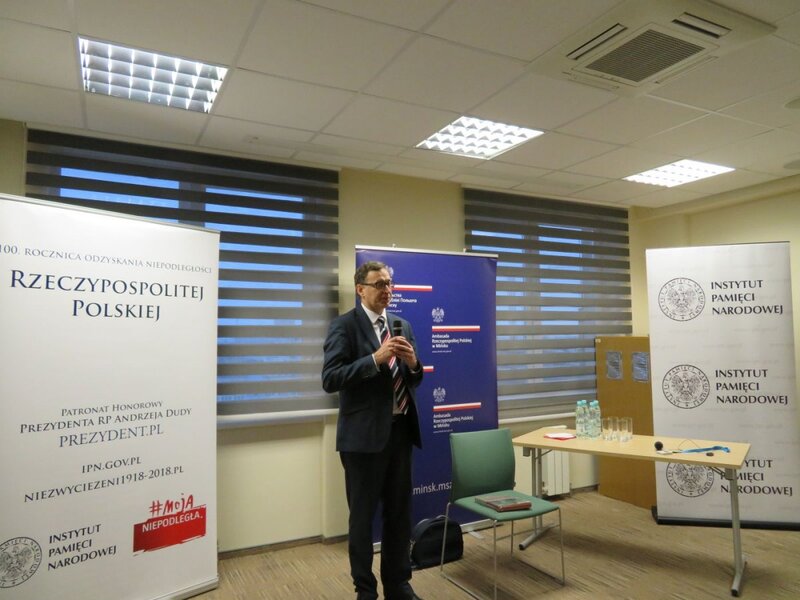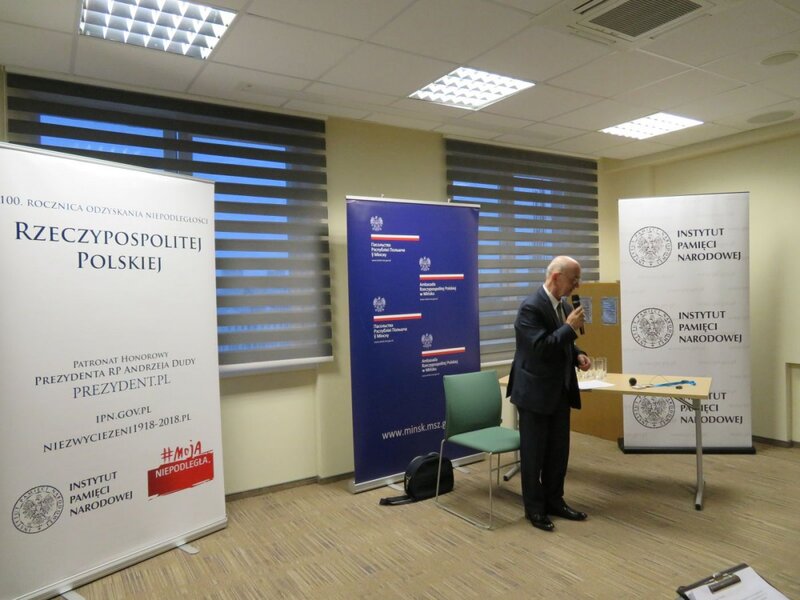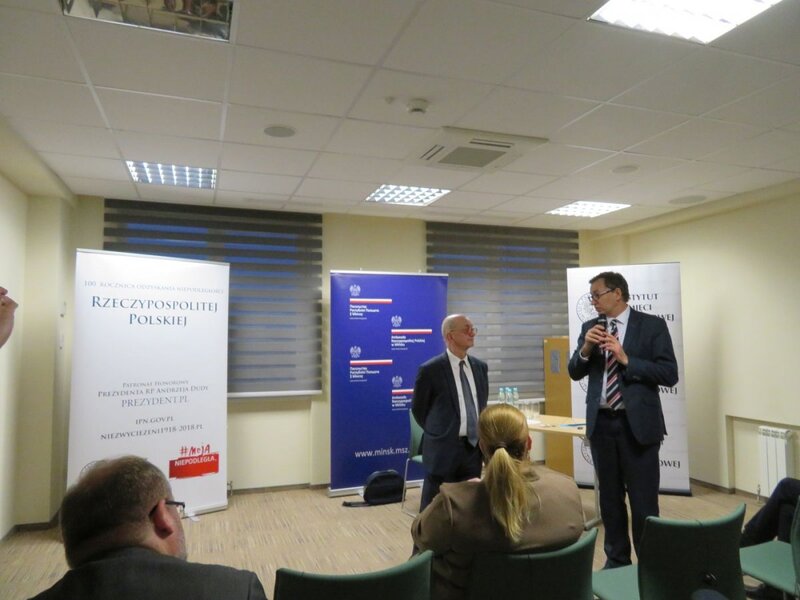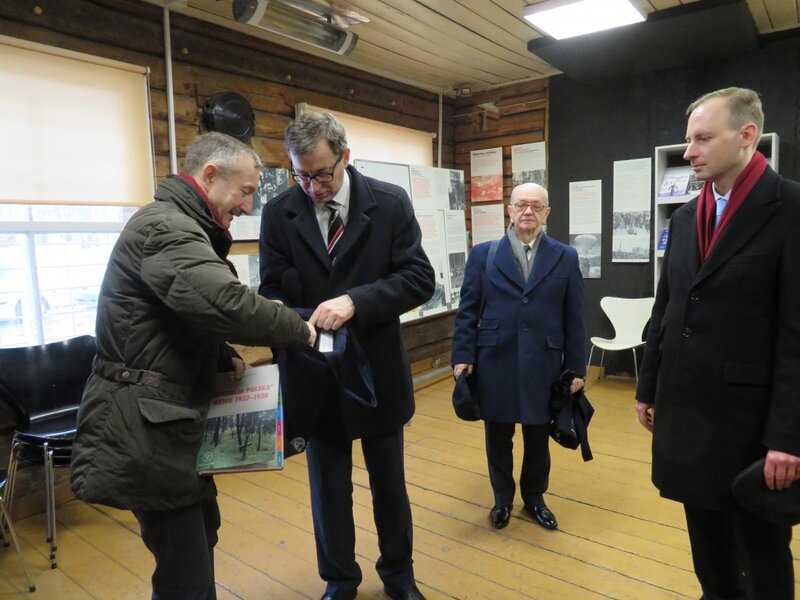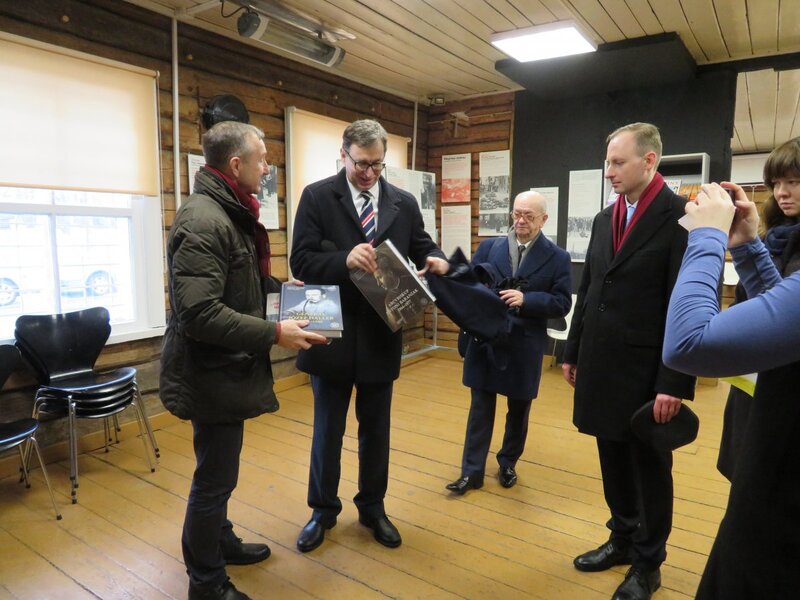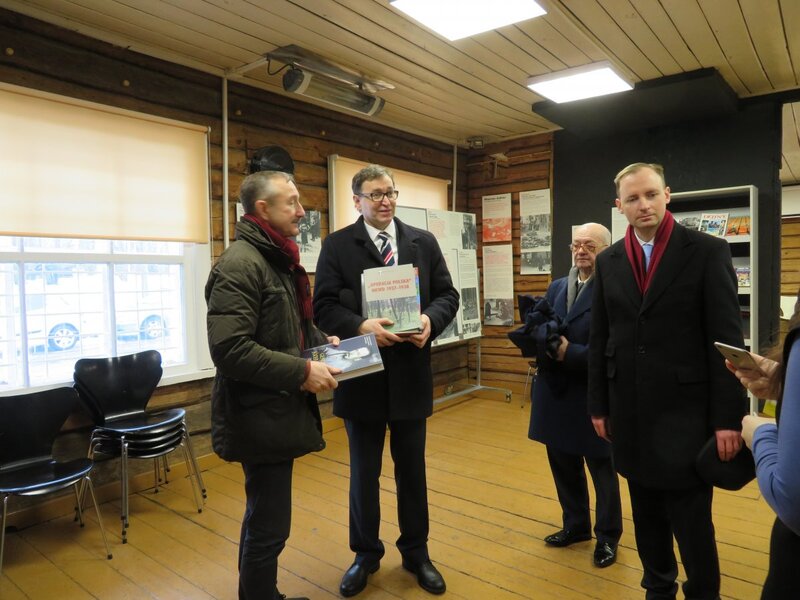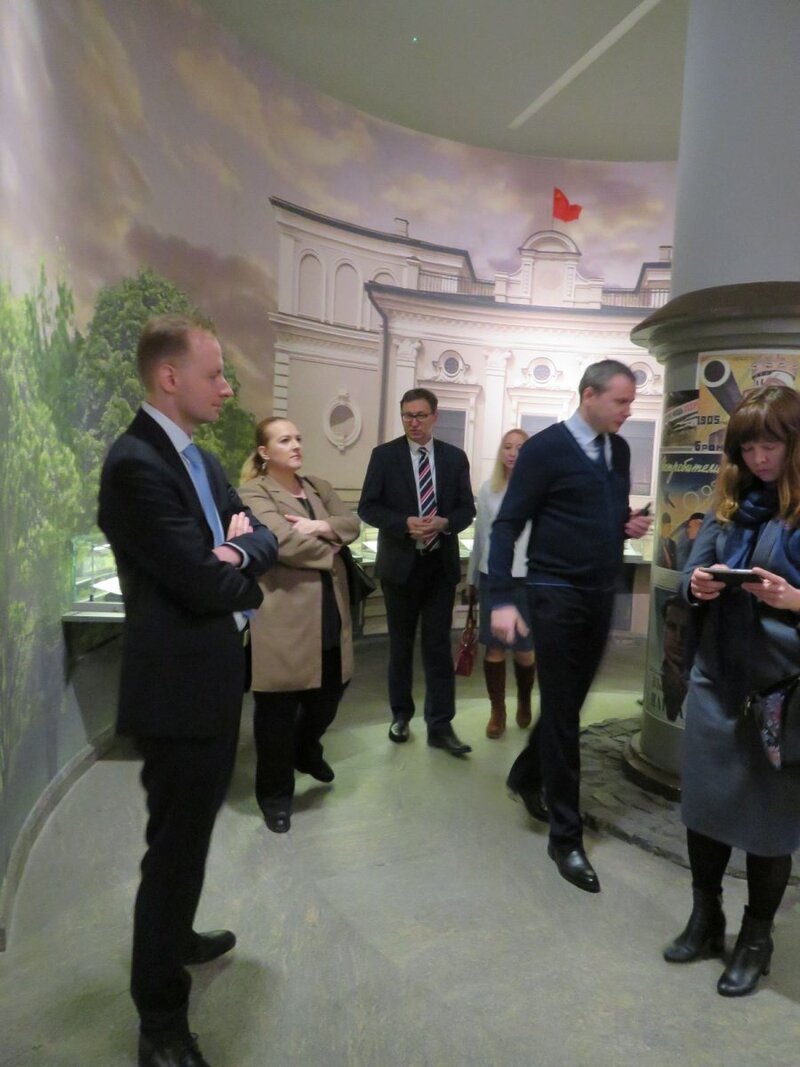On Monday, January 29, the delegation visited Kuropaty near Minsk, the resting place of victims of political repressions in the 1930s and 1940s. Among the thousands of innocent victims of the NKVD, there are probably almost 4,000 Poles buried there. The delegation laid flowers and lit candles at the commemoration site.
The President of the Institute of National Remembrance also gave an interview to Polish and foreign media, presenting educational materials published by the Institute of National Remembrance on the topic of the "Polish Operation" NKVD 1937-1938. The fate of Poles in Bolshevik Russia and in the USSR until 1939.
During their stay in Belarus, the IPN representatives will meet the authorities of the History Institute of the Belarusian Academy of Sciences, the History Department of the Belarusian State University and the dean of the Department of International Relations of the Belarusian State University.
During the meeting at the Minsk Historical Workshop dealing with cherishing Jewish history, Jarosław Szarek proposed the presentation of IPN’s exhibition devoted to "Żegota" as well as the
"The Good Samaritans from Markowa" exhibition.
At the meeting with Dmitry Szalachtin, director of the Museum of the Great Patriotic War, which took place after visiting the exhibition at the Museum, Jarosław Szarek, President of the Institute of National Remembrance, said that the greatest drama of the Second World War was that losses mainly concerned civilians, which means that above all, innocent people died in its course. The President of the Institute of National Remembrance also stressed the idea of fighting to the last drop of blood common to Belarusians and Poles. In his opinion, both nations understand it perfectly and therefore should show the western world what the price of the war is. He also thanked for the Polish accents in the museum, such as the exhibition entitled "Holy Cross against the swastika", organized with the participation of the Polish Embassy in Minsk.
In view of the constant need to educate both Belarusian and Polish societies about the tragic history of the Second World War, the President of the Institute of National Remembrance proposed to the Museum management to cooperate with the Institute. The cooperation could include the exchange of archival documents or the organization of conferences. It should be added that the Museum of the Great Patriotic War in Minsk has already taken joint initiatives with the Museum of the Second World War and the Museum of the Polish Army.
During talks between representatives of the scientific community from the Belarusian Academy of Sciences and the Belarusian State University with the authorities of the Institute, it was initially agreed that joint efforts will be made to create a Polish-Belarusian forum of historians, constituting an arena for meetings of scientists from both countries. During forum meetings, issues concerning common history of Poland and Belarus would be discussed. In order to discuss historical topics, meetings of Polish and Belarusian doctoral students will also take place. In addition, it is planned to publish a publication on the latest history of Belarus in Polish.
During the meeting in the Ministry of Foreign Affairs of the Republic of Belarus, both Jarosław Szarek and Andrije Buszyło, Director of the Department of Europe and North America, agreed that the historical dialogue, which is a long and difficult process, should become a connecting point, rather than one dividing Poland and Belarus. In addition, Dr. Szarek proposed laying a plaque commemorating Rafał Lemkin, a Polish citizen born near the town of Wolkowysk, the creator of the concept of "genocide" and a draft convention on the prevention and punishment of the crime of genocide, signed on 9 December 1948, called the "Lemkin Convention". President Szarek also informed that the Institute of National Remembrance is open to cooperation with Belarusians in the field of scientific exchange and joint publications or exhibitions.
At the Polish Embassy in Minsk, within the “History Point” project, a lecture by prof. Włodzimierz Suleja on the subject of building an independent Republic, in the context of post-Partition heritage, challenges faced by the newly created state and people who created it, took place. The introductory speech was given by President Szarek, who spoke about a common, centuries-old Polish-Belarusian history in which one should first of all search for everything that unites us. He also recounted the existing “History Points”: in Vilnius, Brussels, New York, Chicago, Grodno - in all these places, the Institute of National Remembrance will organize lectures, meetings, conferences and exhibitions devoted to Polish history. Jarosław Szarek also presented the educational portfolio concerning Polish Operation by the NKVD and pointed out that the cover of the recently published publication includes Kuropaty, which is why Belarus is the first place where the portfolio is presented.
